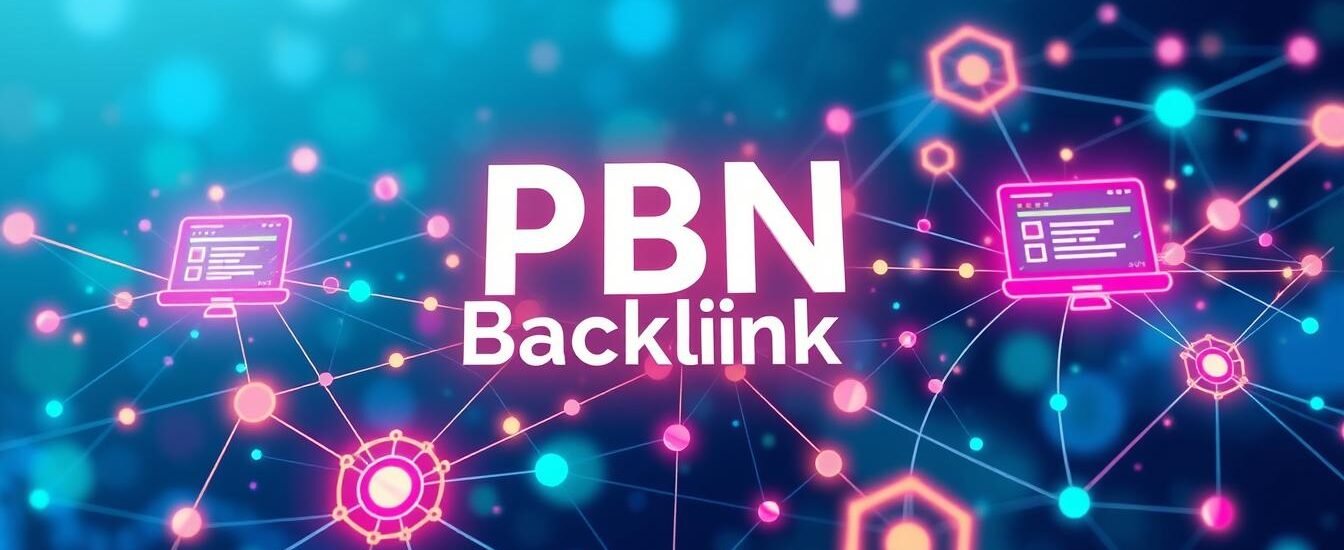PBN Links Private Blog Networks (PBNs) are a hot topic in the world of SEO, and for good reason. These networks offer a shortcut to improve your website’s search engine ranking. But, are they worth the risk? Let’s dive deep into the world of PBN links and explore how they work, their benefits, the risks involved, and how to use them effectively.
What Are PBN Links?
PBN links are backlinks that come from a Private Blog Network (PBN), a network of websites used to build backlinks. These networks are often created by purchasing expired domains with high authority or backlinks, then setting them up with content that links to target websites. The idea is to pass link juice and improve the ranking of the target website.
While PBN links can be powerful, they are often seen as a gray-hat or even black-hat SEO technique due to the manipulation of Google’s ranking algorithms. They work by providing authority to a website through links from established domains. However, the methods involved may not align with Google’s webmaster guidelines, which could lead to penalties.
Understanding PBNs (Private Blog Networks)
A Private Blog Network (PBN) consists of multiple websites that are controlled by a single entity. These sites are typically built on expired or auctioned domains with high domain authority, allowing them to pass on SEO benefits when they link to a target website.
How PBNs Work in Link-Building
PBNs function by controlling several sites, often related to different niches, that link to each other and to the target website. Since these sites have high domain authority due to expired domains or purchased high-authority domains, they can help improve the target site’s SEO.
Legalities and Risks of Using PBNs
Using PBNs is risky because it often violates Google’s guidelines on link schemes. Google doesn’t look favorably on attempts to manipulate search rankings through artificial means. If Google detects a PBN, it could issue penalties, de-index your website, or even remove it from search results altogether.
Why Do PBN Links Matter for SEO?
PBN links can significantly impact your SEO efforts. Here’s why they matter:
The Role of Backlinks in SEO
Backlinks are one of the most important ranking factors for search engines. They indicate to Google that your website is a trusted source of information. The more high-quality backlinks you have, the higher your chances of ranking well.
How PBNs Boost Website Authority
PBNs use high-authority domains to link back to your site. These backlinks help increase the authority of your site, which in turn can boost your rankings in search engine results pages (SERPs).
Impact on Search Engine Rankings
By strategically placing PBN links on high-authority domains, you can increase the likelihood of ranking on the first page of Google for competitive keywords. However, this boost is temporary if your PBN is detected and penalized.
The Benefits of PBN Links
PBNs can offer several advantages when used correctly:
Quick SEO Results
PBN links can provide rapid results in terms of search engine rankings. Because you control the links, you can place them strategically, which can lead to faster improvements compared to traditional SEO methods.
Control Over Anchor Text
Unlike other backlinking techniques where you have limited control, PBNs allow you to manipulate the anchor text used in the links. This helps in targeting specific keywords for your website.
High Domain Authority
PBNs are often built on domains with high domain authority, which can be a powerful factor in improving SEO. This is particularly valuable when dealing with competitive industries or niches.
The Risks of Using PBN Links
While PBN links offer benefits, they come with considerable risks.
Risk of Google Penalties
The biggest risk of using PBN links is the potential for a Google penalty. If Google detects that you’re using a PBN, it could result in your website being penalized, which can drastically reduce your search engine rankings.
Reputation Damage
If your website is caught using a PBN, it could tarnish your reputation in the eyes of both Google and potential customers. Trust plays a crucial role in SEO, and being penalized can have long-lasting consequences.
Short-Term vs Long-Term Impact
The benefits of PBN links might be visible in the short term, but in the long run, the risk of penalties can outweigh these gains. Sustainable growth typically comes from using ethical, white-hat SEO techniques.
Building a Successful PBN
If you’re determined to use PBNs, you need to set them up properly. Here’s how:
Choosing the Right Domains for PBNs
It’s essential to purchase expired or auctioned domains with good backlinks and a clean history. Avoid domains with spammy links, as these can lead to penalties for your PBN.
Setting Up and Managing a PBN
Once you’ve acquired the domains, you’ll need to host them separately and maintain unique IP addresses to avoid detection by Google. The content on each site should be varied and relevant to avoid patterns that could be spotted by search engines.
Maintaining a PBN’s Effectiveness
Regularly check the health of your PBN. Ensure that the domains still have high authority and that the backlinks to your target site remain intact.
Alternatives to PBN Links
If you want to avoid the risks associated with PBNs, consider these alternative SEO techniques:
White-hat SEO Techniques
Guest blogging, influencer outreach, and content marketing are safer methods for obtaining backlinks. These techniques focus on providing value rather than manipulating search engine algorithms.
Organic Link-Building Methods
Organic methods like creating shareable content, building relationships, and participating in forums or discussions are long-term, sustainable ways to earn backlinks.
PBN Link Strategy: Best Practices
If you decide to use PBN links, follow these best practices to minimize the risks:
Diversifying Your Link Sources
Don’t rely solely on PBN links. Use a mix of different link-building strategies to ensure a more natural backlink profile.
Focusing on Quality Over Quantity
Rather than spamming links, focus on acquiring high-quality backlinks that come from authoritative, relevant sources.
Regular Monitoring of PBN Performance
Keep an eye on how your PBN links are performing and whether any of the sites are showing signs of being flagged by Google.
How to Detect PBNs
Google has become increasingly adept at detecting PBNs. If you’re using them, it’s important to understand how Google spots them.
Google’s Methods of Identifying PBNs
Google looks for patterns in linking behavior, such as multiple websites linking to each other with the same anchor text or using the same IP address for several domains.
Tools to Detect PBN Links
There are various SEO tools available, such as Ahrefs and SEMrush, that can help you monitor and detect backlinks from potentially suspicious sources.
Red Flags to Watch Out For
Watch out for domains that were recently registered or have minimal traffic, as these may indicate a PBN in action.
PBN Link Penalties and How to Avoid Them
To avoid penalties, make sure to follow these steps:
What Triggers a Google Penalty?
Google penalizes sites that use PBNs in an attempt to manipulate rankings. This could involve removing unnatural backlinks or even de-indexing the site.
How to Recover from a Penalty
Recovering from a penalty involves disavowing harmful links and building a clean backlink profile. It may take time, but recovery is possible.
Best Practices for Penalty Prevention
Regularly audit your backlinks, maintain a natural link profile, and avoid excessive use of PBN links to minimize the chance of penalties.
Conclusion
While PBN links can offer a quick way to improve your SEO, they come with significant risks. It’s essential to weigh these risks against the benefits before deciding whether to use them. For long-term, sustainable SEO success, consider focusing on white-hat techniques and organic link-building methods.
FAQs
- What is the difference between a PBN link and a regular backlink?
- PBN links come from a network of sites you control, whereas regular backlinks are earned from other websites naturally.
- Are PBN links illegal?
- PBNs aren’t illegal, but they violate Google’s guidelines, which could result in penalties.
- How do I safely build a PBN?
- Purchase expired domains with a clean backlink profile, host them separately, and create high-quality, relevant content.
- Can PBNs still be effective in 2025?
- While still effective, the risk of Google penalties makes them a less reliable option for long-term SEO growth.
- How do I recover from a PBN penalty?
- Remove harmful links, disavow them, and focus on building a clean, diverse backlink profile to recover from a penalty.






